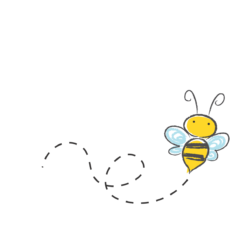As an Amazon Associate I earn from qualifying purchases.

As we move through the later stages of life, embracing practices that nourish our mental and emotional well-being becomes increasingly helpful. Mindfulness, a practice rooted in ancient Eastern traditions, has gained significant recognition in recent years for its ability to enhance the quality of life for seniors. Here we will explore the concept of mindfulness and discuss how older individuals can incorporate it into their daily routines to achieve greater peace, contentment, and overall well-being.
Understanding Mindfulness
Mindfulness is being fully present at the moment, without judgment. It involves paying attention to your thoughts, emotions, and bodily sensations without trying to change them. Instead, you accept them as they are and learn to observe them without attachment. Mindfulness can be considered a mental and emotional exercise that helps individuals cultivate greater self-awareness and inner calm.
Why Mindfulness Matters for Seniors
Stress Reduction
Seniors often face a variety of stressors, including health concerns, social isolation, and changes in their daily routines. Mindfulness can be a powerful tool for managing stress and promoting relaxation.
Improved Cognitive Function
Studies have shown that mindfulness practices can enhance cognitive function, memory, and attention, which are important aspects of maintaining mental sharpness as we age.
Emotional Well-being
Mindfulness can help older adults better manage feelings of loneliness, anxiety, and depression, fostering a positive emotional state.
Pain Management
Mindfulness-based techniques have been shown to reduce the perception of chronic pain, making it a valuable tool for seniors dealing with various physical discomforts.
Better Sleep
Mindfulness practices can improve sleep quality, helping seniors get the rest they need for overall health.
How Seniors Can Incorporate Mindfulness
Simple Breathing Exercises
Find a quiet, comfortable space and focus on your breath. Inhale deeply and exhale slowly, paying attention to the sensation of your breath entering and leaving your body. This simple exercise can help calm the mind and reduce stress.
Mindful Walking
Take a leisurely walk and pay attention to the sensations of your steps, the feeling of the ground beneath your feet, and the sounds of your surroundings. Walking mindfully can be a meditative and grounding experience.
Meditation

Set aside a few minutes each day for meditation. You can use guided meditation apps or follow along with online resources specifically designed for seniors. Meditation helps to increase self-awareness and reduce stress.
Engage Your Senses
Embrace mindfulness through your senses. Savor the taste of your food, enjoy the texture of a warm cup of tea, or appreciate the beauty of nature through sight and sound.
Practice Gratitude
Take time each day to reflect on what you’re grateful for. This can help you shift your focus from what might be lacking to what you already have, fostering a sense of contentment.
Join a Group
Many senior centers and communities offer mindfulness classes or groups. Connecting with others who share your interest in mindfulness can provide motivation and a sense of community.
Mindfulness is a valuable tool that can significantly enhance the lives of seniors. By practicing mindfulness regularly, older individuals can reduce stress, improve cognitive function, and foster emotional well-being. Whether through simple breathing exercises, meditation, or mindful walking, there are various ways for seniors to incorporate mindfulness into their daily routines. Embracing this practice can lead to a more fulfilling and contented life, allowing seniors to age gracefully and with greater peace.
